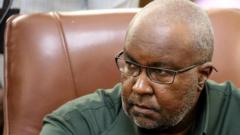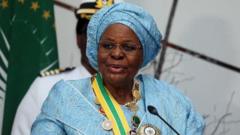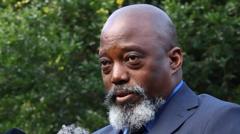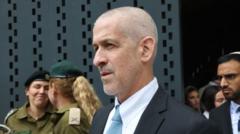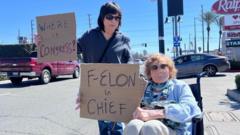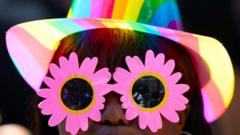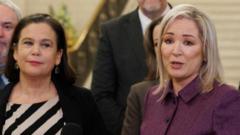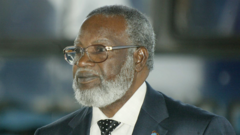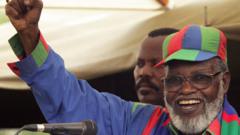In a significant yet controversial election, Namibia has elected its first female president, Netumbo Nandi-Ndaitwah, whose victory sparks debate over electoral integrity.
Namibia’s Historic Presidential Election: Controversy and Change
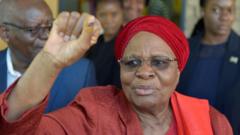
Namibia’s Historic Presidential Election: Controversy and Change
Netumbo Nandi-Ndaitwah becomes Namibia's first female president amidst disputed election results.
In a groundbreaking but contentious election, Namibia has made history by electing its first female president, Netumbo Nandi-Ndaitwah. Serving as vice-president since February, Nandi-Ndaitwah emerged victorious from last week's election, securing over 57% of the votes. Her closest opponent, Panduleni Itula of the Independent Patriots for Change (IPC), received 26%. Despite the electoral commission's declaration of a win, logistical hurdles and extended polling in certain areas led to allegations of electoral malpractice from Itula, who has announced that his party will not recognize the results.
The backlash prompted most opposition parties to boycott the results announcement held in Windhoek, casting further doubt on the electoral process. Following the announcement, Nandi-Ndaitwah expressed hope for peace and stability in Namibia. With Swapo, the governing party since 1990, facing scrutiny, Nandi-Ndaitwah's leadership will be pivotal in navigating the country's political landscape.
Itula, a more charismatic figure and trained dentist, has indicated that the IPC will pursue legal remedies regarding the election outcome. Having reduced Swapo's dominance in the previous election, the IPC is also urging voters dissatisfied with the electoral process to report their grievances to the authorities. The recent election has raised questions about the endurance of liberation parties in the region, considering similar declines in South Africa and Botswana's political spheres, pointing to a shifting dynamic in African politics.

